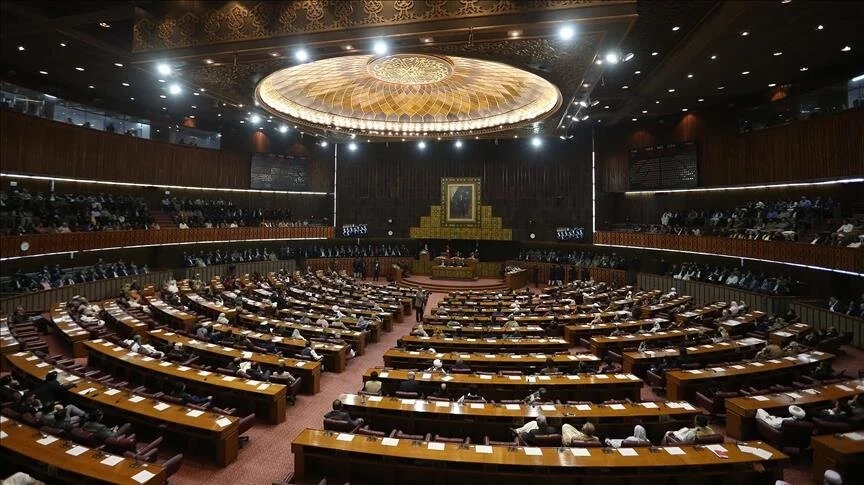The land of Pakistan has been beset by numerous challenges over the past several decades. Since its inception, a succession of issues has hindered Pakistan’s progress. In the dawn of 1947, as the sun of freedom rose and the winds carried the promise of liberation from British rule, hope illuminated the horizon. The populace, buoyed by the prospect of change, anticipated a future free from poverty and hardship. They envisioned a governance of justice, with oppressive imperialist rulers replaced by leaders of their own, ready to champion the cause of their nation.
Alas, the dream remained just that—a dream, never realized. The first decade ushered in a plethora of challenges: the Kashmir war, the Constituent Assembly’s failure to draft a constitution, the tragic demise of Pakistan’s founder and first Governor General, Muhammad Ali Jinnah, in a broken ambulance en route from Karachi Airport, and the assassination of the inaugural Prime Minister, Liaquat Ali Khan, in Rawalpindi. These events shook the very foundations upon which the state was built, leaving it reeling and in dire need of reconstruction.
The initial years witnessed the rise of bureaucratic power, with civil servants emerging as the de facto rulers of the fledgling nation. However, these power struggles sowed seeds of instability, threatening to destabilize the nascent government. The incessant crises and the revolving door of leadership only served to erode public confidence and respect in the governing institutions.
Amidst these crises, a significant shift occurred: the Chief of Army Staff assumed the role of Defense Minister, consolidating military power within the government. This move catalyzed a chain of events that led to the removal of the country’s first president. Subsequently, the Chief of Army Staff took charge, inaugurating a prolonged period of dictatorship.
While this era saw progress, particularly in West Pakistan, the Eastern wing of the country grappled with a profound sense of marginalization. Though temporary stability was achieved, it ultimately proved to be the calm before the storm, culminating in the breakaway of East Pakistan.
The period following those events remains vivid in everyone’s memory, and I will refrain from delving into its intricacies. Today, the nation finds itself mired in persistent instability, with economic woes multiplying and security concerns escalating. However, a notable shift has occurred: the once-trusted pillars of stability have eroded the trust of both the general populace and foreign investors.
As the country navigates toward an uncertain future, anxiety permeates the populace, who are beginning to grasp the gravity of the current crisis. Curiously, those who previously amplified public unease regarding crises seem to have lapsed into a state of inertia. Lawlessness, injustice, insecurity, and economic downturn are on the rise, exacerbated by a media and propaganda apparatus that is once again entangled in the political power play.
On the global stage, Pakistan finds itself ensnared in a geopolitical battleground, with powerful factions within the country vying for influence. Politicians and other influential entities are embroiled in this struggle, disregarding the state’s interests for their own agendas. The continuous disregard for warnings regarding current policies underscores the impression that the well-being and future of Pakistan are not paramount concerns for the powerful elite, whose preferences lie elsewhere. These realities are no longer concealed; they are laid bare for all to see.
In such challenging times, our focus must be directed towards thoughtful action and unity above all else. Rather than solely pondering what steps to take, we must also consider what actions to avoid. The essence lies not only in what we do, but also in what we refrain from doing. I cannot stress enough the importance of maintaining focus and harnessing our collective efforts towards a common goal.
Unity and focus serve as the bedrock of disciplined and consistent endeavors. It is crucial to recognize that progress can be achieved without the pursuit of political power. I firmly believe that such progress is attainable, and it is this conviction that drives me to articulate these thoughts.
Among the pressing issues confronting us are economic instability and security threats posed by terrorist organizations such as TTP, ISKP, and separatist factions. By employing a scientific approach and collaborating with the intellectual class of our nation, we can significantly mitigate the severity of these challenges. However, this endeavor hinges upon the availability of accurate, truthful, and transparent information.
In this regard, organizations like Command Eleven play a pivotal role in disseminating reliable information. My intention in reaching out is to empower Pakistan’s civil society and businesses to formulate actionable plans based on precise data and logical processes. Such clarity and stability are indispensable for the progress of local enterprises, as well as for attracting foreign investment.
A thriving business environment, characterized by security and stability, not only fosters economic growth but also fuels job creation and enhances overall prosperity. By nurturing a climate where businesses can flourish, we pave the way for the advancement of our nation and the well-being of future generations.
In the upcoming installments of this series, we aim to delve into a comprehensive analysis of critical issues facing Pakistan, offering insightful solutions and thought leadership to our fellow citizens. This endeavor is particularly crucial in today’s age, where the proliferation of misinformation and fake news has inundated the information landscape.
Amidst this sea of misinformation, the significance of accurate and verifiable information cannot be overstated. It serves as a beacon of truth, guiding us through the complexities of contemporary challenges. It is our solemn commitment and duty to continue striving towards this noble goal.
We invite you to join us on this journey as our valued companion. How can you participate? Stay tuned for the forthcoming episodes of this series, where we will unravel the intricacies of Pakistan’s issues and propose constructive pathways forward. Let us remain connected as we embark on this collective endeavor for the betterment of our nation.
Salman Lali is a contributing fellow at CommandEleven. As an experienced journalist and communications expert, Salman brings over 13 years of expertise. His focus areas include public policy, defense, international politics, and the global economy. With a keen interest in key regions such as India, China, the Middle East, Turkey, and the United States, his analyses capture the complexities of dynamics surrounding these regions. Having worked with respected broadcast houses in Pakistan, he currently serves as a communications consultant to both public and private sector clients.









